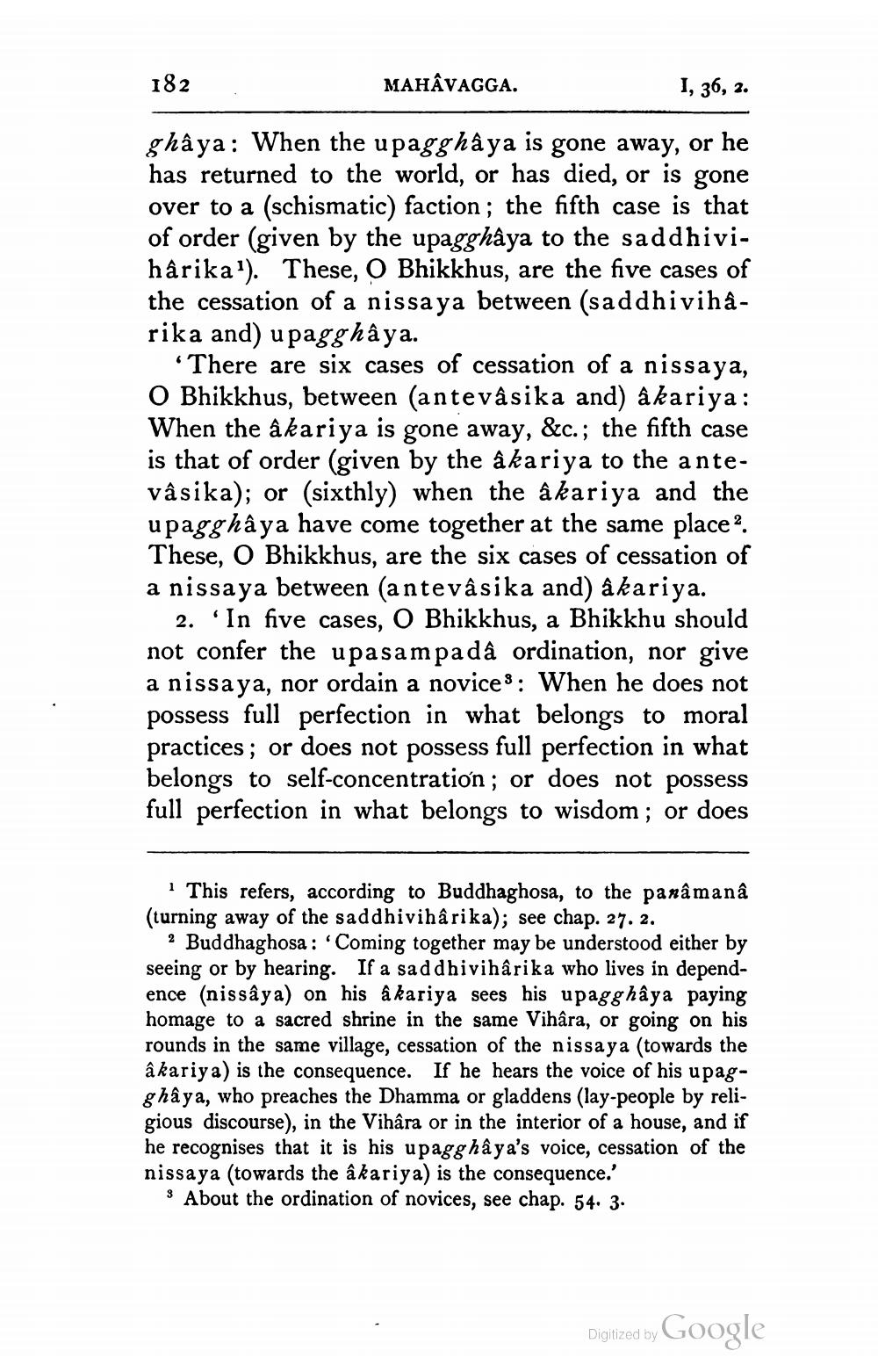________________
182
MAHẤVAGGA.
1, 36, 2.
ghầya: When the upagghầya is gone away, or he has returned to the world, or has died, or is gone over to a (schismatic) faction; the fifth case is that of order (given by the upagghầya to the saddhivihârika"). These, O Bhikkhus, are the five cases of the cessation of a nissaya between (saddhivihårika and) u pagghâya.
“There are six cases of cessation of a nissaya, O Bhikkhus, between (antevâsika and) akariya: When the âkariya is gone away, &c.; the fifth case is that of order (given by the âkariya to the antevâsika); or (sixthly) when the âkariya and the upagghầya have come together at the same place? These, O Bhikkhus, are the six cases of cessation of a nissaya between (antevâsika and) akariya.
2. `In five cases, O Bhikkhus, a Bhikkhu should not confer the upasam pada ordination, nor give a nissaya, nor ordain a novices: When he does not possess full perfection in what belongs to moral practices; or does not possess full perfection in what belongs to self-concentration ; or does not possess full perfection in what belongs to wisdom ; or does
· This refers, according to Buddhaghosa, to the parâmanâ (turning away of the saddhivihârika); see chap. 27.2.
? Buddhaghosa : 'Coming together may be understood either by seeing or by hearing. If a saddhiviharika who lives in dependence (nissaya) on his âkariya sees his upagghầya paying homage to a sacred shrine in the same Vihara, or going on his rounds in the same village, cessation of the nissaya (towards the â kariya) is the consequence. If he hears the voice of his u pagghầya, who preaches the Dhamma or gladdens (lay-people by religious discourse), in the Vihara or in the interior of a house, and if he recognises that it is his upagg hầya's voice, cessation of the nissaya (towards the âkariya) is the consequence.'
3 About the ordination of novices, see chap. 54. 3.
Digitized by Google




